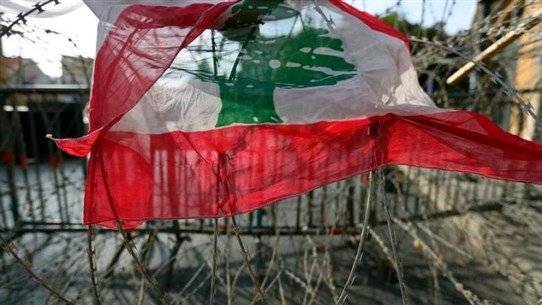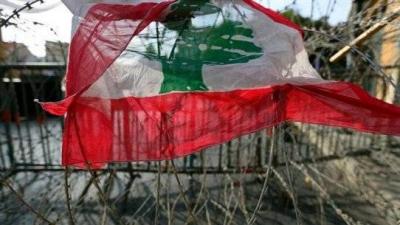After a few weeks of stagnation, the Lebanese suddenly heard about signs of a "breakthrough" that could end the deadlock between President Michel Aoun and Prime Minister-designate Najib Mikati. Thus, it could pave the way to resolve the governmental impasse on the eve of the end of Aoun’s term in the presidential palace. There has been talk here and there about a "code word" that came from a European entity interested in the internal Lebanese situation, about the necessity to overcome obstacles and liberate a legitimate government—not a caretaker government—that is constitutionally and temporarily entitled to assume power in case electing a new president is not possible this fall, for any reason.
Notably, this development, which quickly dimmed after a lukewarm meeting between Aoun and Mikati, coincided with an increase in talk about a potential deal between Washington and Tehran concerning the Iran file, involving generous American concessions and rewards. One can only expect this to provide a major boost to Tehran's destructive and occupying project in the Arab region. The logic—since I will not discuss precedents since 2003—suggests that the funds that will go to the coffers of the Tehran regime, whether from assets or from losses caused by sanctions and economic blockades, will not be used to meet the needs of millions of poor, innocent Iranian citizens. Instead, they will be allocated to the arsenals of the "Revolutionary Guard," conspiracy kitchens, and platforms for incitement to murder and sectarian discord.
Billions of dollars could have been spent on the Iranian people and their well-being, rather than being spent by Tehran to finance its occupying wars in Iraq, Syria, Lebanon, and Yemen, as well as its conspiratorial provocations in the Gulf countries and other Arab countries, reaching as far as Algeria and Morocco. It could have been very possible for a country with Iran's history, civilization, culture, vibrant people, economic capabilities, and immense natural wealth to today hold a leading position among the world’s countries. However, the priorities of the regime, with its clerics and militias, are entirely different. Instead of development and progress, the primary aim has been, and will continue to be, enabling an aggressive and expansionist theocracy—whose goal is to subjugate the domestic populace and humiliate the outside world. Did not one of the regime's henchmen once say it is better for Iran to fight its enemies in the streets of Baghdad, Beirut, and Damascus rather than in the streets of Tehran, Isfahan, and Shiraz?!
This is the prevailing mindset in Tehran, and these are the intentions of the regime that have become completely evident… rather, they are being practically and daily translated into a systematic, phased cancellation of "state" institutions everywhere that its sectarian militias rule, alongside demographic change, identity alteration, culture forgery, and the plundering of national wealth while puppets from its affiliates and followers are "presided" over.
Yesterday, I read a beautiful article in which the author noted that "the American invasion of Iraq in 2003 annulled the results of the Iraq-Iran war," which forced Tehran to swallow poison… and delayed the complete implementation of “exporting the revolution.” It is known that "exporting the revolution" actually means Iran's invasion of the region and its occupation, just as the term "resistance" has been appropriated and commodified by its leadership to this day. It was, of course, understandable how the fall of the Baghdad regime in 2003 unleashed Tehran and its followers within Iraq, leading to a permanent Iranian hegemony replacing temporary American dominance.
And how the destructive meddling in the sectarian issue was not hidden from Paul Bremer, the American occupying governor, who congratulated himself—like he was Abraham Lincoln—"for liberating the Shiites from a Sunni hegemony that lasted for centuries." But the truth is that the invasion's implications and effects proved over time not to be less than those on Syria and Lebanon compared to Iraq. The Syrian regime had rehabilitated itself vis-a-vis Washington, and also within Lebanon, in 1990 after its "participation" in the "Liberation of Kuwait." Therefore, the international community, particularly the United States and Israel, overlooked the resurgence of Damascus's influence inside Lebanon despite the assassination of President Rene Moawad, the first Lebanese president elected after the "Taif Agreement"—and strongly hinted that the Syrian regime was behind the assassination.
After 1990, Syria became a strategic logistical "land bridge" connecting an Iran-dominated "Iraq" with a Lebanon dominated by Damascus... but it was in Lebanon where Tehran established, thanks to Ali Akbar Mohtashami, its ambassador in Damascus between 1982 and 1986, the "Hezbollah" militia. Thus, Iran's westward expanding system was solidified towards the Mediterranean Sea. This expansion was only "shaken"—without being halted—by two events: 1. The assassination of former Lebanese Prime Minister Rafik Hariri in Beirut in 2005, a crime later proven by the Special Tribunal for Lebanon to involve individuals from "Hezbollah." In the aftermath of the crime, the Syrian regime was forced to withdraw its troops from Lebanon, settling for its deep, special relations with the party. 2. The popular uprising in Syria in 2011, which solidified the strategic relationship between Tehran and Damascus, as the "Hezbollah" militia participated early in most major battles and "sectarian cleansing" operations within Syria, before the Iranian leadership bolstered it with Iraqi, Iranian, Afghan, and Pakistani sectarian militias tasked with saving the regime and crushing the uprising, intensifying demographic change in Syria.
It should be noted here that neither Washington nor Tel Aviv, nor even the French leadership in Paris, were ignorant of what was happening or surprised by it; instead, there was close monitoring in these capitals of all developments taking place in Syria and Lebanon, as well as in Gaza and Yemen, to which Tehran and its Revolutionary Guard's influence has spread. Nevertheless, with the exception of American President Donald Trump's adversarial reaction—at least verbally—to Tehran’s policies and the Assad regime, nothing changed on the ground in all the mentioned areas. Even during Trump's four years in the White House, his strategic alliance with the Israeli right, along with his close relations with Russian President Vladimir Putin, influenced his refusal to topple the Damascus regime… and also in keeping hostility toward Tehran under the ceiling of mere economic sanctions.
Today, Tehran's allies have regained their positions in Washington, "Likud" is preparing to return to power in Israel, Paris is excited to strengthen its relations with Tehran, and Putin seeks to exploit the midterm elections in America… In such an atmosphere of deals and extortion, saving what remains of the existence of Lebanon, Syria, and Iraq holds no significance in major decision-making capitals. Fundamentally, these states are no longer actually present… why do they need governments?




